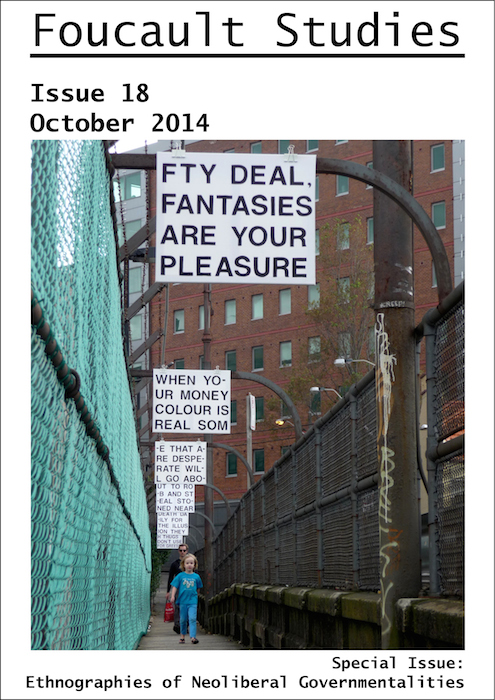Neo‐Liberalism, Police, and the Governance of Little Urban Things
DOI:
https://doi.org/10.22439/fs.v0i18.4651Abstract
This article seeks to refine understandings of the governmental logics that comprise and shape urban governance. Drawing on research using ethnographic methods that explore the business improvement district (BID) and the condominium corporation (condo) it is argued that exclusive focus on urban neo-liberalism neglects an urban ”police.” This latter logic is most famously remarked upon in Michel Foucault’s writings as targeting “little things” in urban spaces. Both “police” and the ”free rider problem” it confronts predate and are irreducible to neo-liberalism. Ethnography helps discern this “police” as well as how neo-liberalism relates to it in private urban realms typically hidden from view. Examining BIDs and condos in this way shows that neo-liberalism and “police” co-exist and combine in the governance of urban residential and commercial life. This matters because it reveals a more complex picture of urban governance than is sometimes assumed when neo-liberalism is exclusively invoked and one that is necessarily considered when conceiving of alternative governing arrangements.Downloads
Published
2014-10-17
How to Cite
Lippert, R. K. (2014). Neo‐Liberalism, Police, and the Governance of Little Urban Things. Foucault Studies, (18), 49–65. https://doi.org/10.22439/fs.v0i18.4651
Issue
Section
Special Issue on Ethnographies of Neoliberal Governmentalities
License
Authors retain copyright to their work, but assign the right of the first publication to Foucault Studies. The work is subject to a CC BY-NC-ND 4.0 license, but despite these restrictions, authors can take for granted that Foucault Studies will permit articles published in Foucault Studies to be translated or reprinted in another format such as a book providing a full reference is made to Foucault Studies as the original place of publication.



